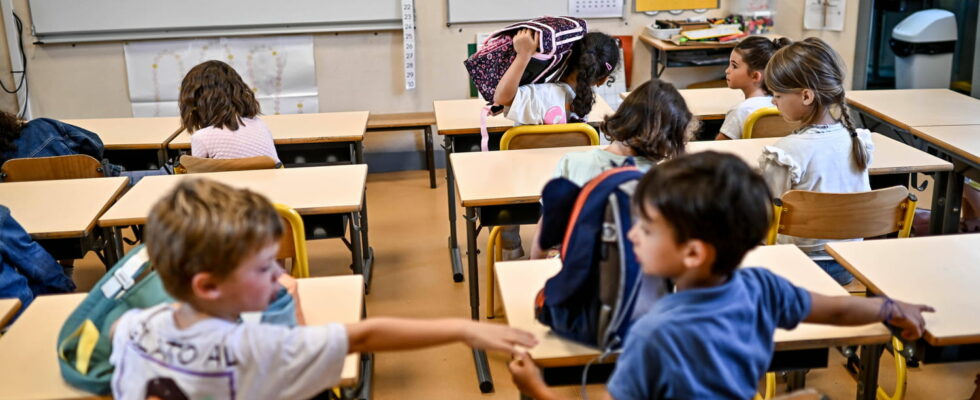Many classes could close in the coming years, given the decrease in the number of students. Several scenarios are being considered by the services of the Ministry of National Education.
As teachers continue to campaign for better working conditions and higher pay, classes could close in the coming years. reportcommissioned by Matignon at the end of 2023, was carried out in the “expenditure review” by the general inspectorate of finance and the general inspectorate of education, sport and research, so-called “interministerial” services. This report, written for the “expenditure review” in April was made public this September. It proposes “models of the distribution of school education resources taking into account the characteristics of schools and establishments but also demographic developments by 2027”.
This study highlights the importance of taking into account the gradual decrease in the number of children per generation. “School numbers decreased by 350,000 students between 2017 and 2023, while higher education numbers increased by 245,000 students between 2017 and 2022,” the report states. This is particularly linked to a decrease in the number of births, which has been a trend for several years and is expected to continue. It is then estimated that by 2028, there will be 500,000 fewer students. “Short- and medium-term demographic prospects may justify a reduction in the necessary teaching resources, with a constant educational policy,” the report adds.

Three scenarios are then envisaged. The first aims to “identify and correct classes with too few students without creating classes with too many students”, thanks to a comparison of the supervision rate in establishments of similar category. This would amount to closing classes within the same establishment by distributing the students to other classes, thus allowing the closure of 300 to 600 classes.
The second lever concerns the doubling of classes in REP or REP+ establishments, particularly at CP and CE1 levels. This system ensures a maximum of 12 students per teacher. The plan envisages raising this threshold to between 13 and 17 students, leading to the closure of 117 to 2,359 classes. This proposal follows the observation that “the positive effect on learning of the 12-student threshold currently implemented in CP and CE1 is not the subject of a convergent assessment in the literature devoted to the subject”, according to the report.
Finally, the third hypothesis is based on an “adaptation of the territorial network of schools”, i.e. an adjustment of the educational offer to the needs of the different territories. This would involve identifying certain schools whose students “could all be accommodated in a school in the same sector less than 20 minutes away by car”, ensuring that the students will obtain an “equivalent educational offer”. A more radical method since it would correspond to the closure of entire establishments. This could concern 1,925 schools, i.e. 4% of establishments. These different avenues are “at the disposal of the Ministry of National Education” and must be compared with “the realities on the ground”. Even if they are consulted and under study, there is no indication at this stage that they will be followed. But the new government also has in its sights the need to significantly reduce public spending over the next 5 years.
